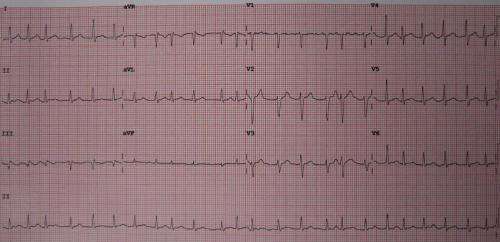Improving Reading Speed in Children with Dyslexia Through Sensory-Motor Activities

A novel sensorimotor and cognitive intervention significantly boosts reading speed and self-esteem in children with dyslexia, offering promising benefits for early treatment strategies.
A recent study demonstrates that a specialized protocol combining sensory-motor exercises with cognitive engagement can significantly enhance reading abilities in children diagnosed with dyslexia. Over a period of two months, eleven children aged between 10 and 12 participated in the intervention, which involved recreational activities aimed at stimulating motor and social skills alongside cognitive tasks. Following this program, improvements were observed not only in reading speed but also in self-esteem, attention, and overall well-being.
The intervention focused on addressing the underlying challenges faced by children with dyslexia, such as difficulty in maintaining gaze on words for longer periods, which affects their reading fluency. Researchers highlighted that individuals with dyslexia tend to require more time to process and recognize words, partly due to potential cerebellar impairments that interfere with sensory integration and motor coordination.
The study’s findings, published in the journal Applied Neuropsychology: Child, suggest that targeting the cerebellum and eye movement control can lead to meaningful improvements. While the current results are based on a small sample, they point towards the effectiveness of integrated sensorimotor and cognitive training. The research team plans to expand their program in partnership with the Rio Claro city government, aiming to include more children and refine the intervention protocol.
Interestingly, the study found no significant impact on manual agility or coordination, possibly due to the lack of specific motor skills training in the protocol. Researchers believe that increased activation of the cerebral cortex, responsible for higher cognitive functions such as language and memory, contributed to the observed benefits. The short, twice-weekly sessions proved sufficient to produce notable changes in reading speed and confidence among participants.
The researchers also noted that dyslexia is typically not diagnosed until after age 10, by which time many children have already developed entrenched reading and motor difficulties. Early detection and targeted interventions like this sensory-motor approach could help mitigate long-term learning challenges and improve educational outcomes.
Overall, this innovative approach underscores the potential of combining motor activity with cognitive tasks to support children with dyslexia, offering a promising avenue for future educational and therapeutic strategies.
Source: https://medicalxpress.com/news/2025-07-sensory-motor-protocol-children-dyslexia.html
Stay Updated with Mia's Feed
Get the latest health & wellness insights delivered straight to your inbox.
Related Articles
Genetic Factors and Anticoagulant Use Associated with Increased Intracranial Hemorrhage Risk in Atrial Fibrillation Patients
New research links the APOE e4 genetic allele and Eliquis use to increased risk of intracranial hemorrhage in atrial fibrillation patients, highlighting potential for personalized treatment strategies.
New Research Highlights Increased Risk of Anal Cancer in Women with Prior Cervical Cancer
New research indicates women with a history of cervical cancer face a nearly doubled risk of developing anal cancer, highlighting the need for updated screening guidelines to improve early detection and prevention.
Enhanced Detection of Genetic Factors in Chronic Kidney Disease Using Multi-Marker Approach
A groundbreaking multi-marker approach enhances the detection of genetic factors in chronic kidney disease, offering new avenues for targeted treatments and improved understanding of kidney health.



